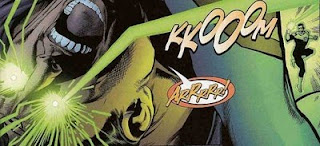
AFP/Getty Images
Pope Benedict XVI celebrates mass during Holy Week at St. Peter's Basilica at the Vatican on Thursday. The Pope has been on the defensive as the Catholic Church's ongoing child abuse scandal has again gained force in the U.S. and Europe.
Published: April 02, 2010
No American publication has written about charges of sexual abuse within the Catholic Church longer, or more consistently, than the National Catholic Reporter. It's a small, not-for-profit news organization based in Kansas City, Mo., with a circulation of 34,000, a full-time news staff of just eight, and an unshakable Catholic faith.
"NCR was founded about 45 years ago to report on the news of the church like a good local or good city newspaper covers the news of its municipality," says Joseph Feuerherd, the paper's publisher.
But in recent weeks the hometown paper has not only reported the news but, in a starkly worded editorial, challenged the very credibility of Pope Benedict. The Pope has been on the defensive for charges he failed to intervene while an archbishop and cardinal against priests he was warned had abused children.
"The focus now is on Benedict. What did he know? When did he know it? How did he act once he knew?" asks the editorial, written by Feuerherd and Thomas Fox, editor of the National Catholic Reporter.
"The strategies employed so far — taking the legal path, obscuring the truth and doing everything possible to protect perpetrators as well as the church's reputation and treasury — have failed miserably. We now have the largest institutional crisis in centuries, possibly in church history ... It is time, past time really, for direct answers to difficult questions. It is time to tell the truth."
The media has not been widely thanked within the Church for raising such questions. The Vatican newspaper termed press coverage "clearly an ignoble attempt to strike at Pope Benedict and his closest aides at any cost." The Catholic archbishop of Portland, Ore., canceled his subscription to the Oregonian newspaper and called for fellow Catholics to follow suit after its editorials questioned the practice of celibacy within the church in light of the sex abuse scandal. An Italian exorcist said press coverage of the issue was "prompted by the Devil."
All of which might make it seem surprising for a Catholic paper to take the stand it did. But from its founding in 1964, the National Catholic Reporter embraced a liberalism inspired by the reforms of the Vatican II Council. So staffers blended their faith with a desire to seek and report the truth — including things that reflected critically on the church.
"This was a novelty. Most of the papers were owned by bishops and they were house organs," says former Newsweek religion editor Kenneth L. Woodward, who contributed some articles in the early days. "These people did independent reporting, and did it right from the start, and with high journalistic standards. It was pretty exciting."
Its best known reporter is its ubiquitous senior correspondent John Allen Jr. — a respected authority on Vatican doctrine and politics who has become the paper's public face on CNN, NPR, and other media outlets. But the National Catholic Reporter assigns correspondents and freelancers to travel across the country and the world to chronicle good deeds and success stories as well as the tensions within the church.
One story has always been different. National Catholic Reporter staffers saw the emergence of lawsuits by parents of children claiming abuse at the hands of clergy who had failed to win the attention of bishops and priests. NCR editor Tom Fox says patterns emerged.
"One was the clergy abuse and the second was the cover up of the local bishop," Fox says. "That usually went with the bishop denying that the abuse ever took place, and then often turning on the victim, saying that that person was just making it up."
Fox says reporters often found priests were shuffled to other parishes — and complaints of abuse would recur. Even back then, the National Catholic Reporter called for full accountability from the church. The coverage created a backlash.
"We were getting letters from bishops, we were getting from priests and letters to the editor who were saying at that time that we were really destroying the church," Fox says. "It was a very, very lonely and very difficult period for us."
A member of NCR's board of directors, seen as a champion of reform within the church, angrily quit in disgust when he was not able to alter the paper's editorial direction, according to Feuerherd and Fox.
Not everyone agrees with the current editorial, either. Woodward, now a contributing editor at Newsweek, says the editorial overreaches by relying too heavily on what he considers flawed reporting by The New York Times. Allen, the NCR's senior correspondent, wrote a carefully crafted opinion piece for the Times saying that much media coverage has overlooked the major reforms undertaken by the former Cardinal Ratzinger, now Pope Benedict.
I asked whether the language of the editorial, reminiscent of questions asked about President Richard Nixon during the Watergate crisis, was intended to so starkly challenge the Pope's credibility.
"These are not just questions we're asking," Fox responded. "These are questions Catholics around the world are asking."
Fox says he's receiving far fewer objections from readers these days. Instead, he's receiving letters from people with their own claims of being abused, who ask whether he can tell their stories, too. Copyright 2010 National Public Radio

















